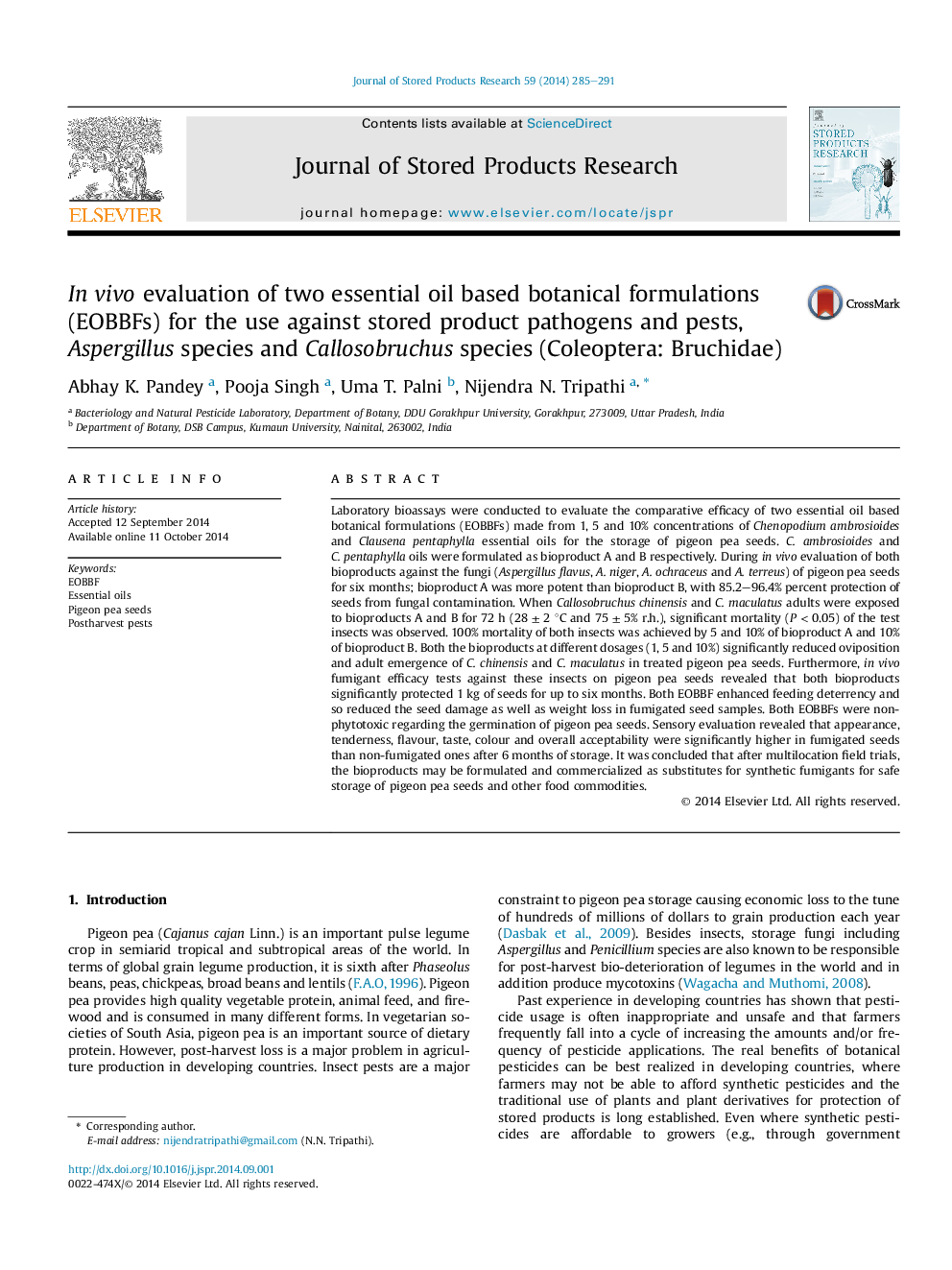| Article ID | Journal | Published Year | Pages | File Type |
|---|---|---|---|---|
| 6378479 | Journal of Stored Products Research | 2014 | 7 Pages |
â¢1, 5 and 10% of 2 EOBBFs (bioproducts A & B) were evaluated in vivo against postharvest moulds and pests of pigeon pea seeds.â¢Tablets containing 1, 5 or 10% of bioproduct A and 10% of B inhibited fungal contamination of pigeon pea seeds.â¢Both bioproducts achieved significant mortality of Callosobruchus chinensis and C. maculatus, inhibited oviposition and progeny emergence.â¢6 g of bioproduct A (1, 5, 10%) and B (10%) protected stored seeds (1 kg) up to six months.
Laboratory bioassays were conducted to evaluate the comparative efficacy of two essential oil based botanical formulations (EOBBFs) made from 1, 5 and 10% concentrations of Chenopodium ambrosioides and Clausena pentaphylla essential oils for the storage of pigeon pea seeds. C. ambrosioides and C. pentaphylla oils were formulated as bioproduct A and B respectively. During in vivo evaluation of both bioproducts against the fungi (Aspergillus flavus, A. niger, A. ochraceus and A. terreus) of pigeon pea seeds for six months; bioproduct A was more potent than bioproduct B, with 85.2-96.4% percent protection of seeds from fungal contamination. When Callosobruchus chinensis and C. maculatus adults were exposed to bioproducts A and B for 72 h (28 ± 2 °C and 75 ± 5% r.h.), significant mortality (P < 0.05) of the test insects was observed. 100% mortality of both insects was achieved by 5 and 10% of bioproduct A and 10% of bioproduct B. Both the bioproducts at different dosages (1, 5 and 10%) significantly reduced oviposition and adult emergence of C. chinensis and C. maculatus in treated pigeon pea seeds. Furthermore, in vivo fumigant efficacy tests against these insects on pigeon pea seeds revealed that both bioproducts significantly protected 1 kg of seeds for up to six months. Both EOBBF enhanced feeding deterrency and so reduced the seed damage as well as weight loss in fumigated seed samples. Both EOBBFs were non-phytotoxic regarding the germination of pigeon pea seeds. Sensory evaluation revealed that appearance, tenderness, flavour, taste, colour and overall acceptability were significantly higher in fumigated seeds than non-fumigated ones after 6 months of storage. It was concluded that after multilocation field trials, the bioproducts may be formulated and commercialized as substitutes for synthetic fumigants for safe storage of pigeon pea seeds and other food commodities.
Graphical abstractDownload full-size image
